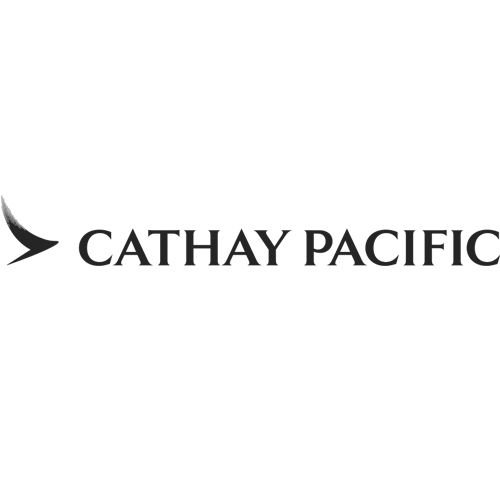Affordable Content Marketing Services in Singapore
- Tsamarah Balqis
- Sep 18, 2025
- 5 min read
Updated: Nov 24, 2025
“Affordable” content marketing doesn’t mean cheap blog mills or 10 posts a month that no one reads. In Singapore, where attention is pricey and seasons like 11.11, 12.12, and CNY compress demand into spikes, affordable means clear scope, measurable outcomes, and the right assets shipped on a predictable cadence.

This guide shows you what to buy (and what to skip), how to structure a 90-day plan, and where to focus your dollars so content actually drives pipeline and revenue.
What “Affordable” Should Mean
Affordable ≠ lowest quote. Affordable = high ROI per dollar because the plan prioritises:
Bottom-funnel assets that move money (pricing, comparisons, case studies, product-led tutorials).
Lean strategy to avoid guesswork (ICPs, message house, 90-day calendar).
Distribution by default (SEO, email, social, lightweight paid boosts).
Measurement (GA4 events, UTMs, assisted conversions, dashboard).
If your offer, data, or pages are broken, content spend balloons without returns. Fix tracking and key pages first, then scale.
The Core Services That Deliver ROI on a Budget
1) Strategy (Lean, But Real)
You don’t need a 100-page deck. You need a one-pager that clarifies:
ICP(s) & jobs-to-be-done
Pain points and objections (by funnel stage)
Message house: promise → proof → payoff
90-day content calendar with owners and dates
An angle bank (hooks like POV/problem/solution) to drive weekly creative
This keeps production tight and aligned with revenue, not “topic ideas.”
2) SEO SERVICE & Search-Led Content
Treat search as your always-on distribution:
Pillars + clusters mapped to real intent (commercial and transactional first)
On-page hygiene (titles, headers, schema, internal links)
For e-commerce: collection/category copy and PDP FAQs that answer buying questions
For services: local/FAQ hubs that rank for near-me and procedure queries
3) Bottom-Funnel Workhorses
These assets pay for themselves:
Pricing pages that explain cost drivers and packages
Comparison pages (“You vs Alternatives”) with honest trade-offs
Case studies as stories: problem → approach → proof → outcomes
Product-led tutorials (video + written) to shorten time-to-value
Sales enablement: one-pagers, objection handlers, short clips for WhatsApp/email
4) Repurposing & Distribution
Every asset should spawn a content bundle:
Long → short: article → carousels → shorts → email snippet
Video ↔ blog: transcripts and highlights turn one shoot into multiple pieces
Owned (email), earned (partners/PR), and light paid lifts to jump-start reach
5) Measurement & Dashboards
If you can’t prove impact, it isn’t affordable.
GA4 events: content_engaged, lead_submitted, checkout_started, purchase
UTMs + content IDs per asset and snippet
Assisted conversions & a quick post-purchase survey (what influenced you?)
Cohort analysis by concept (hook/story idea) so you scale angles, not just URLs
Packages That Keep Costs Predictable
Starter Velocity > Volume (Months 1–3)
Mini-strategy (ICPs, message house, angle bank)
2 BOFU assets/month (e.g., comparison + case study)
1 MOFU playbook/month (problem/solution guide)
4–6 repurposed shorts per asset + 1 email send
GA4/UTM setup + simple dashboard
When to choose: you need revenue-adjacent content now, with modest distribution.
Growth Balanced (Months 1–6)
Everything in Starter, plus
1 pillar + 2 cluster posts/month (search-led)
Quarterly CRO pass on top pages (headline, proof blocks, CTA placement)
Sales enablement kit derived from the quarter’s best content
When to choose: you’re ready to compound, not just convert.
Accelerator Launch/Seasonal Sprint (4–6 weeks)
3–4 BOFU assets in rapid sequence
1 launch/offer landing template
Creator/UGC briefs + light paid amplification
Optional: PR pitch for a data POV or hero customer story
When to choose: lead-up to a product drop or seasonal spike (11.11/12.12/CNY).
A 90-Day “Affordable” Plan (Week-by-Week)
Weeks 1–2 Diagnose & Design
ICP workshop; angle bank; 90-day calendar
GA4 event map + UTMs + content ID scheme
Identify 3 BOFU topics, 1 MOFU playbook, and a search-led pillar
Weeks 3–6 Produce & Ship
Ship 1 BOFU asset/week; each spawns 3–5 shorts + 1 email
Implement schema and internal links for shipped pages
Start light boosts on the best short (S$5–S$20/day) to find a winner
Weeks 7–10 Distribute & Optimise
Expand distribution: partner placements, founder/SME posts, PR pitch if relevant
CRO passes on top traffic pages (headline, social proof, CTA clarity)
Launch the pillar + first cluster post; add internal links from BOFU assets
Weeks 11–12 Scale What’s Working
Double down on winning angles (fresh hooks, new formats)
Build a sales enablement kit (one-pager, objection doc, talk track, short clips)
Lock next quarter’s bets: 2 new clusters, 3 new BOFU assets, one hero case study
How to Judge “Affordable” Offers
Deliverables you can touch: strategy one-pager, briefs, distribution plan, dashboard access
Velocity plan: number of assets, repurposing count, and weekly review cadence
Distribution baked in (email, social, SEO agency singapore, paid lift) vs “publish and pray”
Measurement: event map, UTMs/IDs, assisted conversions, cohort reporting
Team clarity: named roles, timelines, change-log visibility, PDPA-aware consent flows
Red Flags That Drain Budgets
“We do 10 blog posts/month” with no funnel mapping or distribution plan
Guaranteed rankings/traffic without conversion targets
No access to dashboards or change logs
Link schemes/PBNs; AI rewrites with zero expert review
No ownership of dev tickets (schema, speed, internal links never ship)
Budget Savers That Don’t Hurt Results
Repurpose first: film once, slice everywhere (shorts, carousels, email, site snippets)
BOFU bias: build comparisons, pricing, and case studies before top-funnel thought pieces
Angle testing: keep the same core asset; iterate hooks weekly
Reusable design: landing and content templates you can launch in hours, not days
Micro-UGC: clear briefs for creators/customers beat studio polish for most feeds
FAQs
How long until I see ROI from content? Expect signal in 6–10 weeks (hygiene + BOFU) and compounding at 3–6 months (pillars/clusters + enablement). Dev speed and distribution matter.
Do I need paid media for content to work?A light boost accelerates learning and reach. Content + small paid = faster signal, better angle discovery.
How many assets per month is “enough”?Base velocity on funnel gaps, not quotas. For most SMEs: 2 BOFU + 1 MOFU/month plus repurposing is a smart baseline.
Can one team cover SEO company singapore + video + copy?Possible ask for team structure and sample deliverables: a content brief, a clip, a search plan, and a dashboard.
What KPIs should I hold an agency to? B2B: SQLs/pipeline and cycle time. Ecom: Revenue, AOV, repeat rate. Both: Blended CAC/ROAS and assisted conversions from content.
Final Recommendation (and Your Next Step)
“Affordable” content marketing in Singapore is strategy-light, outcome-heavy. Start with bottom-funnel assets, repurpose aggressively, distribute on purpose, and measure by revenue not pageviews. Keep a weekly rhythm: plan → ship → distribute → measure → iterate. If a proposal can’t show you which assets, which channels, and which KPIs—plus who does what by when it isn’t affordable. It’s risky.
If you’d like a neutral, Singapore-specific plan you can use with any vendor assets, distribution, budgets, and a reporting template:



.png)
.png)
.png)

























.jpg)